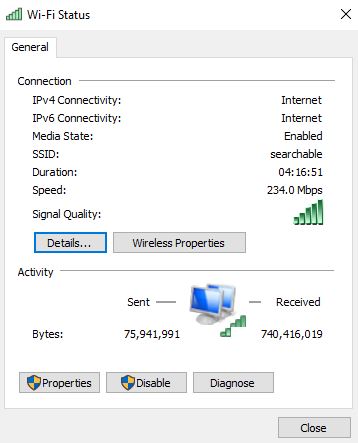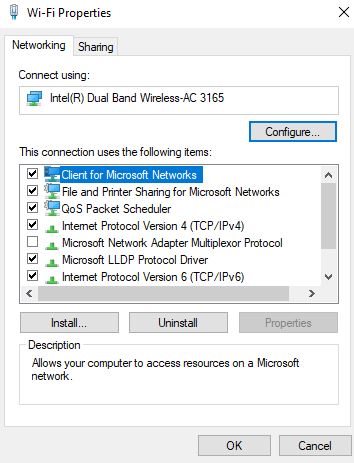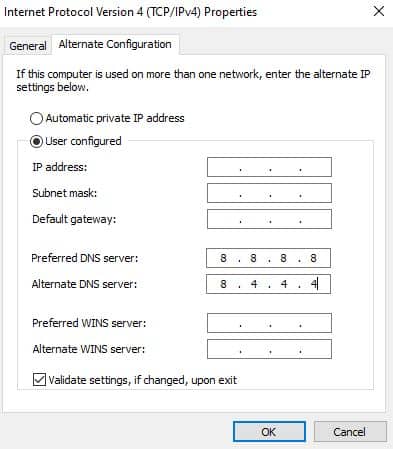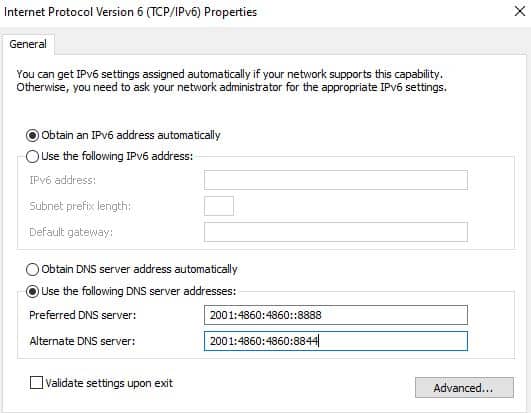Does your internet slow down after a sudden power outage?
I experienced the same issue until I realized the problem was not with the internet but the ISP and hardware!
The slow internet issue may only last for a while, but you should know the problem is grave if the issue persists!
However, do not worry because most internet issues can be fixed with simple hacks!
Read on to find out how power outage affects your internet and ways to overcome them.
Table of Contents Show
Why is My Internet Slow After a Power Outage?
You would know your internet is slow when the kids at home cry out, “What happened to the Wi-Fi?” or the YouTube video resolution suddenly drops below 720p.
However, slow internet is a common issue you may encounter at any point, including after a power outage!
A power outage is a minor reason for a slow internet connection because outages do not happen often.
So why is your internet suddenly slow after a sudden power outage?
A power outage would turn off most devices that send internet signals from the internet exchange, Internet Service Provider (ISP), and local area network to your router.

When one of them goes down, the internet will stop flowing until the power comes back.
Even when it comes back, one of the hardware will take a while to reboot or achieve optimal signal speed.
Therefore, the “end-user” or you may face a slow Wi-Fi connection for a brief period.
However, if the reason is your slow internet connection (package), the problem will likely persist.
Remember, an internet speed of fewer than 10/15 Mbps is considered pretty slow in the U.S., as the average internet speed is 25 Mbps.
So, do not blame the power outage for slower internet speed when your internet connection does not even exceed 10-15 Mbps.
Can Power Surge Affect the Internet?
As previously mentioned, a power surge can affect the internet speed, especially when the power comes back on after a sudden outage and a rise in electricity volts.
Remember, the internet passes through hardware prone to wear and tear and alterations caused by electrical surges.
A spike or drop in voltage may lead to lost communication from the ISP to the modem located in your home.
Sometimes, sudden spikes caused by voltage surges due to lightning can even blow out the router, including other possible problems.
- Cables (Connectors corroded or burned from arcing)
- Switches (Ports corroded/burnt from arcing, damaged main boards running are reduced capacity)
- Routers (Connectors corroded)
- Servers (Damaged Network Interface Controller or damaged mainboards with integrated NIC)
Therefore, experts recommend getting a surge protector to protect your devices from a sudden power surge.
The internet connection outage or slow speed can be caused by a sudden electricity spike and may lead to alteration, a drop in DNS, or even a damaged router.
Therefore, a power surge is not a good idea for the internet speed unless you can protect your router/modem using a surge protector.
How to Fix Slow Internet After a Power Outage?
Before deciding your internet is slower, check the speed using the SpeedTest app.
If the download speed constantly exceeds the package speed promised by ISP, then the problem may be graver.
Here are some quick ways to fix slow internet at home or the office.
1. Reset the DNS Server
Although unrelated to the internet speed, DNS or Domain Name Server can influence how fast websites could open.
Therefore, fixing or resetting your DNS setting through a laptop or computer is the answer.
Solution
Here is a quick way to diagnose the problem with your DNS server using a Windows computer and a temporary solution.
- Click on Windows, type Control Panel, and click on the option.
- Navigate to Network and Internet > Network and Sharing Center > Change adapter settings.
- Tap on the internet connection and select Properties.

- Go to the Networking tab, and select Internet Protocol Version 4 (TCP/IPv4) or Internet Protocol Version 6 (TCP/IPv6) > Properties.

- Click Advanced and choose DNS and select Use the following DNS server address. Replace the existing DNS setting with 8.8.8.8 or 8.8.4.4 for IPv4.

- Use the following DNS server address 2001:4860:4860::8888 or 2001:4860:4860::8844 for IPv6.

2. Hard Reset the Router or Modem
A power outage or sudden electrical surge can damage the router or modem settings.
Although it does not cause hardware damage, it will affect the internet speed.
This problem is similar to routers that may freeze after continuous use, requiring a hard reset.
You should try hard resetting the device to clear the cache and temporary files and fix configuration issues affecting the internet.
Solution
- Unplug the LAN cables and power cord and plug it back in after a few minutes.
- Otherwise, find the reset button on the back of the router.
- The reset button is often small and discreet, requiring using a pin.
- Insert the pin into the reset button and press it for a few seconds before releasing.
These steps should effectively hard reset your router, but do not forget to reconfigure it before using it.
3. Power Cycle and Reboot the Router
Power outages can cause minor glitches to the router or modem, affecting the internet speed.
Leaving your router on continuously may cause a sluggish internet connection.
You can effectively fix this by power cycling or rebooting your router.
Solution
- Start with switching off the router and removing LAN connections.
- Unplug the router and wait at least 15 seconds.
- Plug the router back and wait 1-2 minutes before powering it back on.
- Wait for all panel lights to turn green before testing the internet connection.
4. Repair or Damaged Router Parts
It is common for router parts like cables, switches, and connectors to die due to power outages or sudden power surges.
The only solution is to replace the affected parts, more minor or main components, or the equipment altogether.
Consult the internet provider to replace the parts or the router with a new one.
Next, configure the router with the appropriate setting and run a speed test to determine whether the new router works just fine.
Fortunately, most internet providers cover replacing the router in the event of damage, so you need not pay any extra fee.
5. Check With Your ISP
Sometimes, there might not be any problem from your side but the ISP itself.
You should consult your ISP to determine whether they are facing any downtime.
Routine maintenance, problems with the internet exchange, and damaged cables leading to the loss of internet packets are a few possible causes.
These problems would require advanced diagnosis, which the internet providers can only determine.
Remember, if the power outage can damage your router, it can also affect the ISP’s hardware.

Conclusion
A power outage, although rare, can affect the speed of your internet connection.
Remember, a power outage or surge can temporarily or permanently damage the router and affects its configuration.
Therefore, you should be proactive about diagnosing possible problems with the internet connection.
Use this guide to quickly fix your internet speed problems, and let us know which worked for you in the comments!


